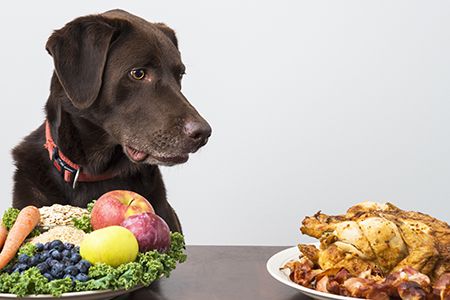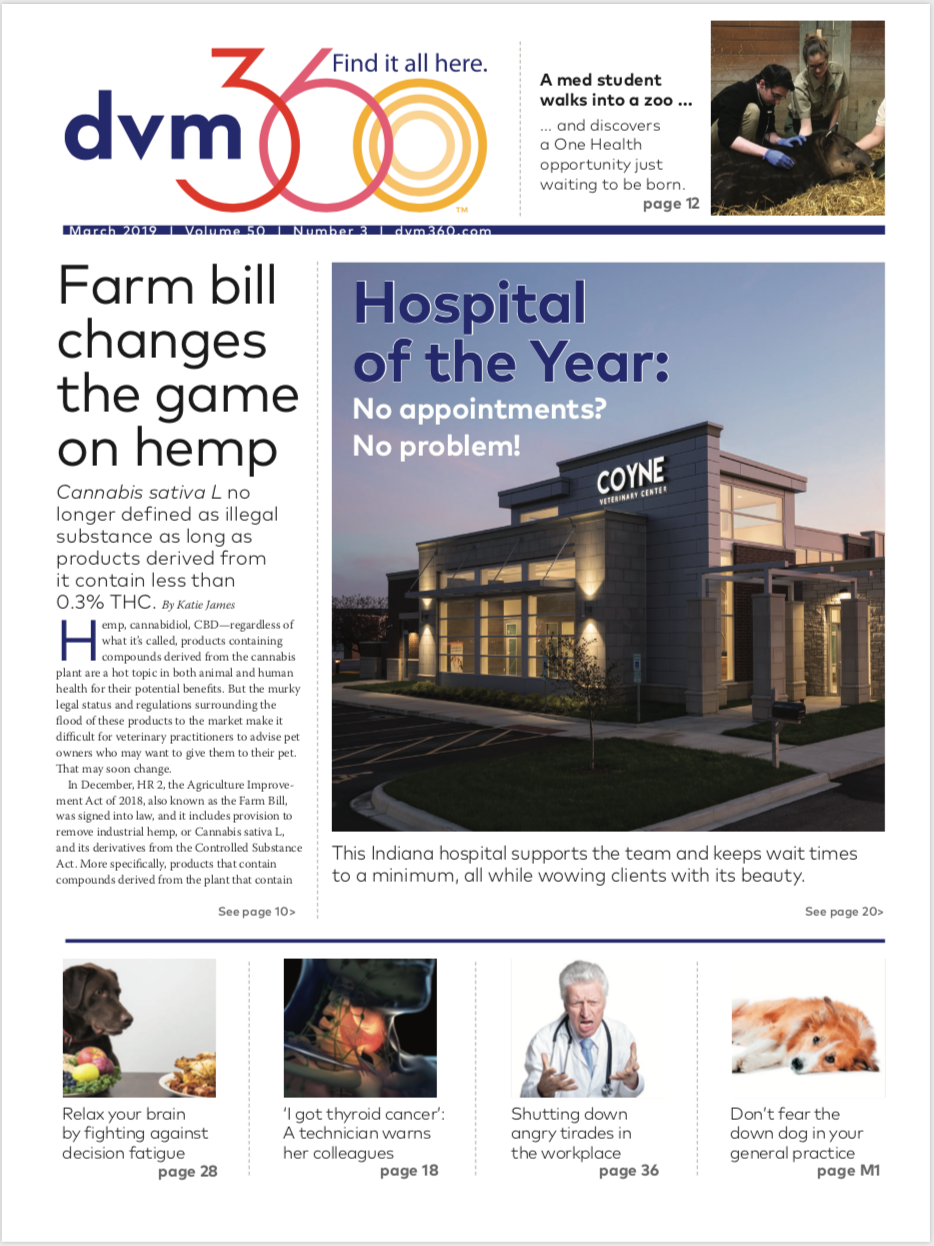Jumpstart your brain: The fight against decision fatigue
Decision-making shortcuts can ward off mental fatigue in your life and veterinary practice.
Michael Pettigrew / stock.adobe.com

Think about the number of decisions you make in a day. Would you guess it to be in the thousands? If so, you're like most people, and you're guessing low. The reality is that the average adult makes an estimated 35,000 decisions a day-more than 200 of those about food alone!1
In a society where daily life involves an overwhelming number of choices, decision fatigue is a concept that resonates. It's also a burgeoning area of psychological research. And as the field emerges, psychologists and scientists are discovering correlations between the number of decisions a person makes and the quality of those decisions.2 In other words, the more choices you face in a given day, the crappier your decisions turn out to be.
The good news is that you can create habits that reduce the number of decisions you have to make, which conserves your resources for the important stuff. It starts with simple awareness. Let's take a closer look.
What is decision fatigue, anyway?
Psychology defines decision fatigue as the pattern of deteriorating quality of a person's decisions after a long session of decision making. When our cognitive resources are exhausted, the quality of our decisions, self-control and task orientation decreases.3 We can also suffer from decreased self-control, along with a reduced capacity and willingness to perform.4
Psychologists and neuroscientists studying the effects of decision making on the brain and body are examining everything from fine-motor skills and math abilities to food choices, figuring out how decision fatigue can deplete mental stamina.
To snooze or not to snooze?
Decision fatigue is the worst when we have too many decision to make in a short amount of time. That said, decision fatigue affects individuals differently, and other factors like sleep, nutrition and stress also help determine our mental stamina.
Experts don't clearly understand how much a single decision contributes to fatigue, but there's some evidence that larger and more important decisions take the greatest toll. Therefore, the “cost” (monetary, emotional or otherwise) of a decision may influence the amount of fatigue imposed on the brain. An even more direct correlation exists between the number of decisions made in a period of time. When buying a car, people are more likely to choose the default options package if they're asked to make this decision at the end of the purchasing process rather than the beginning, showing less engagement and more reliance on decision shortcuts.5
Our daily decisions begin as early as whether to snooze the alarm clock. Then it's on to what to wear, what to eat, is there time to do dishes before leaving, what's the best route to work today-all before leaving the house. Next we face an onslaught of decisions at work, we're bombarded with product choices from countless retailers, and we fill the gaps with social media: Do I keep scrolling? Do I give that a like or a love? Which game should I play on the subway home? By the end of the day, it's easy to see how we've made more than 35,000 decisions.
Decision fatigue takes some unique forms in the veterinary profession. From the front desk to the very back of the hospital, decisions drive our daily flow and success in practice. There's no shortage of decisions to make-whether it's prioritization of tasks and clients or determining the best equipment for the job, next task on our list or optimal path to the desired outcome.
Even after we've made a decision, we tend to overanalyze the outcome, contributing further to our fatigue level. When we give additional mental energy to a decision we've already made, we draw energy from our stamina for future decisions.
Facing the consequences of decision fatigue
Decision fatigue may mean we order pizza instead of preparing a healthy dinner or spend too much money shopping online when we get home from work. Manufacturers and marketing experts have even learned to capitalize on decision fatigue with checkout lane offerings, which are less resistible after the prolonged mental strain of deciding between brands, sizes, sales and labeling in the grocery store.
Those consequences may not seem too severe. But what happens when someone suffering from decision fatigue holds the life of another in their hands? One study examining decisions made by parole judges found that these judges were more likely to grant parole in the morning, when they'd made fewer decisions that day and their mental energy was high. As the day progressed, the decision to grant parole fell by 10 percent.5
Likewise, physicians have been found to prescribe antibiotics more frequently toward the end of their shifts.5 Another study determined that dermatologists were more prone to perform biopsies as the day progressed, and as biopsies increased, positive findings decreased-in other words, more patients were unnecessarily subjected to an invasive procedure.2 Dermatologists were better able to identify the need for biopsy early in the day when they were fresh; later in the day they were less able to confidently determine signs of malignancy, so they more readily relied on biopsy.
Fighting decision fatigue is not just about preserving mental energy so we can persevere through fatigue at the end of the day. In veterinary medicine, we need to safeguard our decision making energy in order to provide the best level of care for our patients.
Make decisions ahead of time for mental peace
Fortunately, there are many simple steps we can take to decrease the number of choices we have to make and increase our available mental resources for the day's most important decisions.
> Eliminate unnecessary decisions. Steve Jobs, Barack Obama, Mark Zuckerberg and countless other successful individuals wore some version of the same outfit every day. This is simply to eliminate the decision about what to wear. If a workplace requires uniforms, there's one less decision to make. Even if our veterinary clinic doesn't have uniforms, we can “assign” ourselves a set of scrubs for each day or pick a weekly wardrobe on the first day of the week, eliminating one decision for the day.
> Meal planning. Determining what to eat and when can eliminate a large portion of the 200-plus food choices we make in a day. That's a lot of mental reserves! There are many great meal planning apps, books, menus and meal-delivery services. Use these tools to cut down on decisions about what to eat.
> Take advantage of technology. Using online tools can reduce many unnecessary decisions. Grocery shopping online reduces split-second decisions (and unnecessary purchases) by eliminating browsing through the grocery store. Purchase just what's needed and save time by not having to shop. Use navigation tools like Waze to eliminate decisions about traffic. By eliminating unnecessary errands, apps like these reduce mental expenditure.
> Stick to your decisions. Once you've made a decision, stick to it whenever possible. This helps to train your brain that once it's done it's done, which will strengthen your ability to move forward mentally and not second-guess yourself, which drains capacity.
> Prioritize self-care. The truth is, you can't pour from an empty cup. Rest and rejuvenation are not optional-you must prioritize them. Good nutrition and mental rest through meditation practice can help to build our ability to mentally override racing thoughts, decreasing our mental depletion.
There will always be decisions to make, unexpected priorities and the need to change. But understanding the toll of unnecessary mental strain can help create awareness. Finding areas to decrease decision making will boost our ability to make quality decisions throughout the day, stay on track with decisions and self-control, and increase personal care. When we create self-determined decisions, a cycle of positive momentum begins.
Beckie Mossor, RVT, is the director of operations at 3K9 Working Dogs, which trains eligible canines to work in service, therapy, conservation and search and rescue programs.
References
1. Graff F. UNC TV; February 7, 2018 . UNC TV Science website. science.unctv.org/content/reportersblog/choices.
2. Seth D, Honda KM. Impact of time of day on dermatologists' decision to biopsy. J Am Acad Dermatol 2017;76(6; suppl 1):407.
3. Tian F, Exline M. Reduced clinical recall and attentiveness due to decision fatigue. Am Jour Resp Crit Care Med 2017;195:A7153.
4. Massar SA, Csathó Á, Linden DV. Quantifying the motivational effects of cognitive fatigue through effort-based decision making; May 30, 2018. Frontiers in Psychology website. www.frontiersin.org/articles/10.3389/fpsyg.2018.00843/full.
5. Polman E, Vohs KD. Decision fatigue, choosing for others, and self- construal. Soc Psychol Personality Sci 2016;7(5):471-478.
